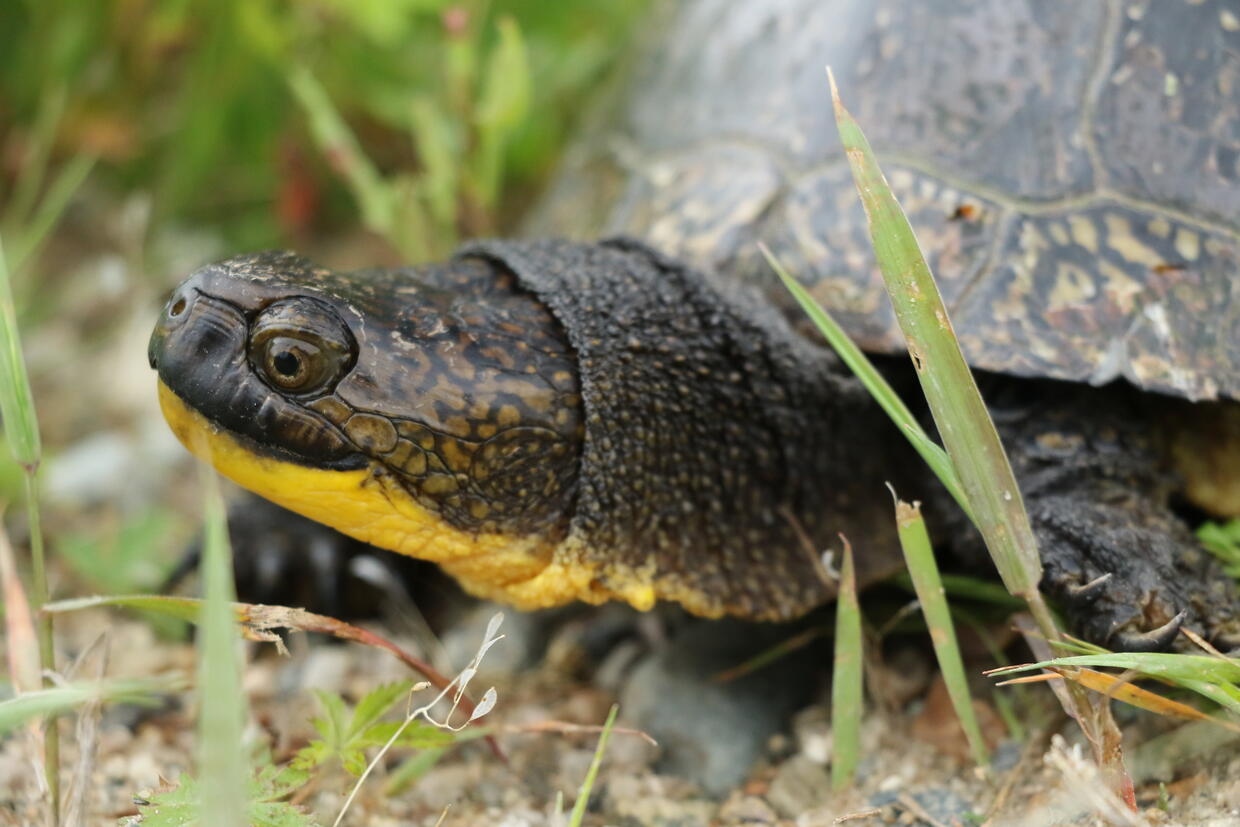The Blanding's turtle is a listed species in the State Wildlife Action Plan (SWAP). Find detailed information on the Blanding's turtle, its threats, and what Massachusetts is doing to conserve this animal in its official factsheet.
Fast facts
Common name: Blanding's turtle
Scientific name: Emydoidea blandingii
Range in MA: Essex, Middlesex, northern Worcester, and Norfolk Counties
Conservation status: Threatened (MESA)
Fun fact: Blanding's turtles are named after a Massachusetts-born physician from Rehoboth!
Similar-looking species: spotted turtles and eastern box turtles
Identification tip: yellow throat and a spotted carapace
Description
Massachusetts populations of Blanding’s turtleare part of a small, relict occurrence in central New England that extends into New Hampshire and Maine. Its core range is hundreds of miles farther west, in the Upper Midwest, Great Lakes, and northern prairies. The species is named for William Blanding, a Massachusetts-born physician and naturalist from Rehoboth, who discovered the first described specimens near Chicago, Illinois. In Massachusetts, Blanding’s turtle is most likely to be encountered in the northeastern counties (in a broad arc from about Worcester to Merrimac) although a few populations persist south and east of the Massachusetts Turnpike (I-90). Blanding’s turtles are medium-sized with a domed shell and striking yellow throat. The carapace or upper shell is dark gray and marked with spots or vermiculation (worm-like markings). Individual Blanding’s turtles can have either a speckled or spotted appearance. The plastron or lower shell is not fused to the carapace; rather, it is kinetic and slightly moveable and there is no bony bridge connecting the plastron to the carapace. However, the plastron does not close tightly like a box turtle. Blanding’s turtle’s plastron usually has a cream- or horn-colored background with blackish blotches on each of 12 plastral (belly) scutes. Blanding’s turtle overall appearance is dark, highly domed, and smooth, and the yellow throat is often prominently displayed when basking.
